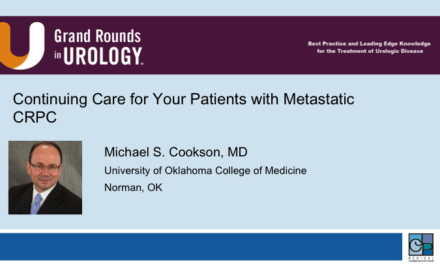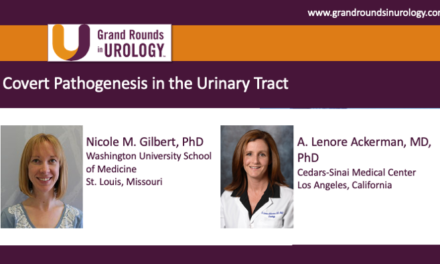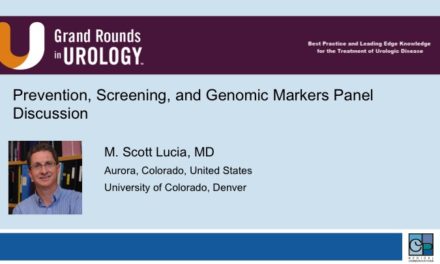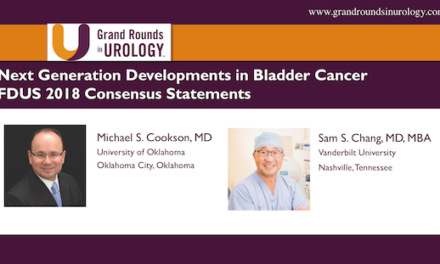John W. Davis, MD, presented “Patient Safety Concerns in Urologic Cancer Surgery and Treatment During the COVID-19 Outbreak” for the Grand Rounds in Urology audience in April, 2020.
How to cite: Davis, John W. “Patient Safety Concerns in Urologic Cancer Surgery and Treatment During the COVID-19 Outbreak” April, 2020. Accessed Nov 2024. https://dev.grandroundsinurology.com/patient-safety-concerns-in-urologic-cancer-surgery-and-treatment-during-the-covid-19-outbreak/
Patient Safety Concerns in Urologic Cancer Surgery and Treatment During the COVID-19 Outbreak – Summary:
John W. Davis, MD, Professor of Urology and Director of the Urosurgical Prostate Program at the University of Texas MD Anderson Cancer Center in Houston, Texas, discusses how the Center is dealing with the COVID-19 crisis by setting up a committee to determine on a case-by-case basis which surgeries are to move forward, as well as which elective surgeries are still being performed. While trying to be cognizant of the need to conserve resources, the urology department is focusing primarily on large renal tumors and invasive bladder cancer. Overall, they have reduced the OR and ICU capacity to about 25% in order to make room for COVID-19-related admissions. Dr. Davis also details the need to test all patients for COVID-19 prior to any elective surgery in order to lessen potential negative outcomes, self-quarantine for two weeks prior to surgery, and, if possible, delay surgery altogether in order to prevent an undiagnosed patient from infecting the OR team. This is particularly true in favorable, intermediate-risk cases that can be delayed anywhere from six months to a year without affecting outcomes.
For other urology-focused information on the COVID-19 pandemic, visit our resource page.
ABOUT THE AUTHOR
John W. Davis, MD, is a Professor of Urology and Director of the Urosurgical Prostate Program at the University of Texas MD Anderson Cancer Center in Houston. He received his BS in Biology at Davidson College in North Carolina in 1990. He then went on to earn his medical degree at the University of Virginia in 1994 and completed his residency training at Eastern Virginia Graduate School of Medicine in Norfolk. Dr. Davis had fellowship training in prostate cancer research in the Department of Microbiology and Molecular Cell Biology at Eastern Virginia Medical School, and received an American Foundation of Urologic Disease Scholar award for proteomic applications in prostate cancer biomarkers. He completed a Clinical Fellowship in Urologic Oncology at the MD Anderson Cancer Center, and a Fellowship in Laparoscopic Urology at Charité Hospital in Berlin, Germany, under the mentorship of Ingolf Tuerk.
Dr. Davis’ clinical interests include patients with urologic cancers, laparoscopic/robotic surgery, and general urology. His academic interests include quality of life after prostate cancer treatment, outcomes for robotic radical prostatectomy, high-risk prostate cancer trials, active surveillance for prostate cancer, and development of robotic surgical techniques for invasive bladder cancer. He has participated as an investigator in several Southwest Oncology Group and industry-sponsored clinical trials.





